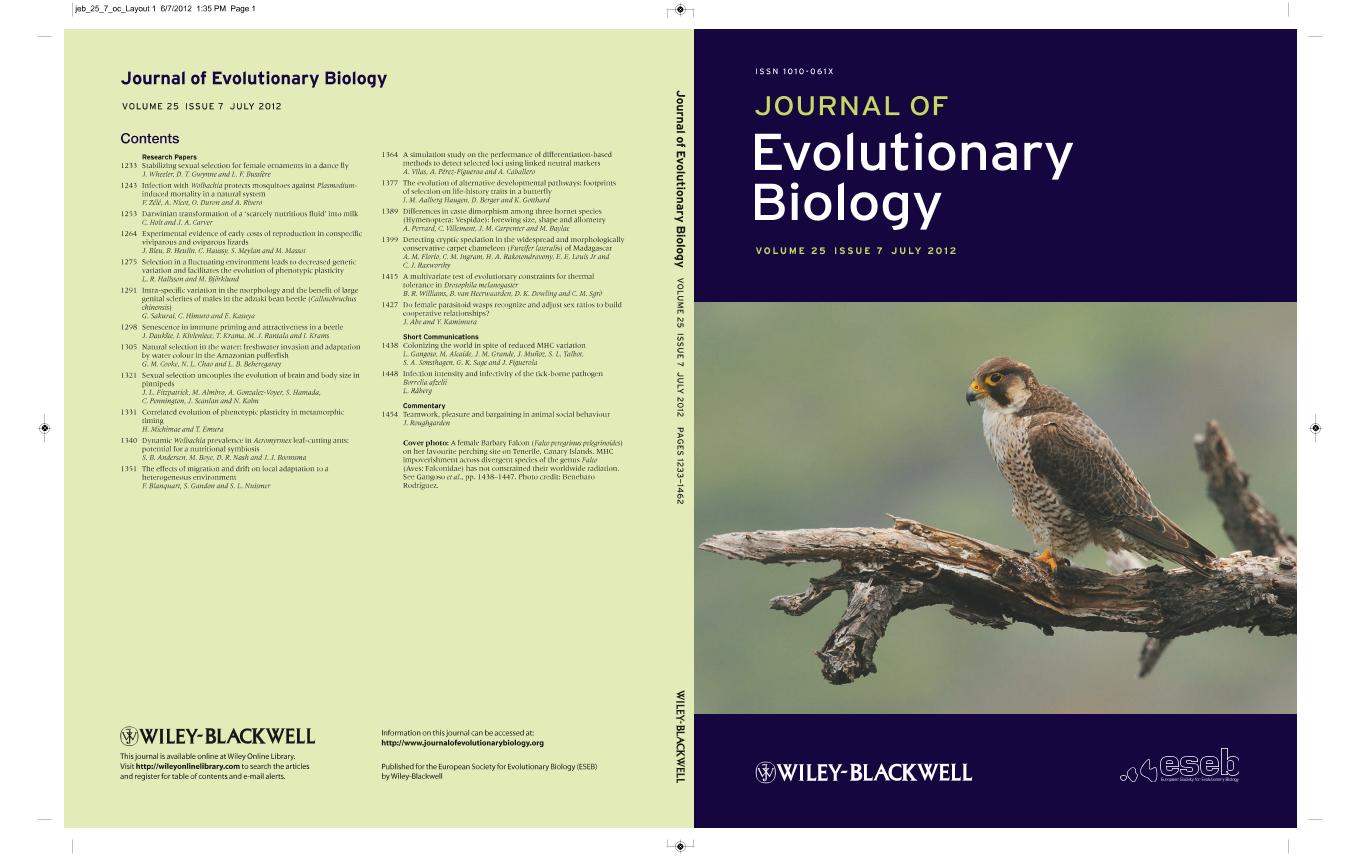Artículo
Colonizing the world in spite of reduced MHC variation
Gangoso, L.; Alcaide, M.; Grande, Juan Manuel ; Muñoz, J.; Talbot, S. L.; Sonsthagen, S. A.; Sage, G. K.; Figuerola, J.
; Muñoz, J.; Talbot, S. L.; Sonsthagen, S. A.; Sage, G. K.; Figuerola, J.
 ; Muñoz, J.; Talbot, S. L.; Sonsthagen, S. A.; Sage, G. K.; Figuerola, J.
; Muñoz, J.; Talbot, S. L.; Sonsthagen, S. A.; Sage, G. K.; Figuerola, J.
Fecha de publicación:
07/2012
Editorial:
Wiley Blackwell Publishing, Inc
Revista:
Journal of Evolutionary Biology
ISSN:
1010-061X
Idioma:
Inglés
Tipo de recurso:
Artículo publicado
Clasificación temática:
Resumen
The major histocompatibility complex (MHC), which harbours the most polymorphic vertebrate genes, plays a critical role in the host-pathogen coevolutionary arms race. However, the extent to which MHC diversity determines disease susceptibility and long-term persistence of populations is currently under debate, as recent studies have demonstrated that low MHC variability does not necessarily hamper population viability. However, these studies typically assayed small and decimated populations in species with restricted distribution, thereby making inferences about the evolutionary potential of these populations difficult. Here, we show that MHC impoverishment has not constrained the ecological radiation and flourishing of falcons (Aves: Falconidae) worldwide. We found two remarkably different patterns of MHC variation within the genus Falco. Whereas MHC variation in kestrels (the basal group within the genus) is very high, falcons exhibit ancestrally low intra- and interspecific MHC variability. This pattern is not due to the inadvertent survey of paralogous genes or pseudogenes. Further, patterns of variation in mitochondrial or other nuclear genes do not indicate a generalized low level of genome-wide variability among falcons. Although a relative contribution of genetic drift cannot be completely ruled out, we propose the falcons went through an evolutionary transition, driven and maintained by natural selection, from primarily highly variable towards low polymorphic and slow-evolving MHC genes with a very specific immune function. This study highlights that the importance of MHC diversity cannot be generalized among vertebrates, and hints at the evolution of compensatory immune mechanisms in falcons to cope with emerging and continuously evolving pathogens.
Archivos asociados
Licencia
Identificadores
Colecciones
Articulos(INCITAP)
Articulos de INST.D/CS D/L/TIERRA Y AMBIENTALES D/L/PAMPA
Articulos de INST.D/CS D/L/TIERRA Y AMBIENTALES D/L/PAMPA
Citación
Gangoso, L.; Alcaide, M.; Grande, Juan Manuel; Muñoz, J.; Talbot, S. L.; et al.; Colonizing the world in spite of reduced MHC variation; Wiley Blackwell Publishing, Inc; Journal of Evolutionary Biology; 25; 7; 7-2012; 1438-1447
Compartir
Altmétricas



